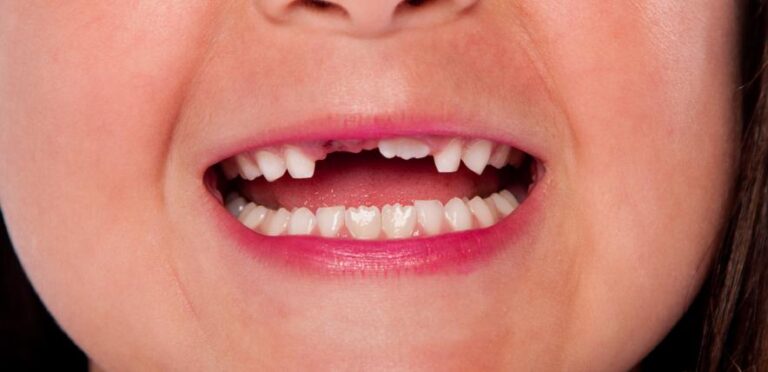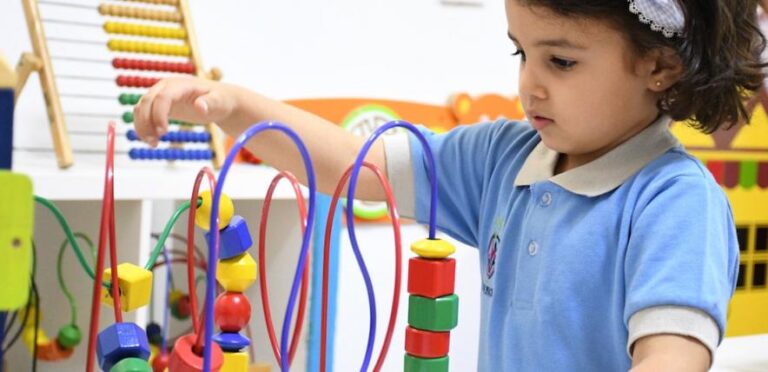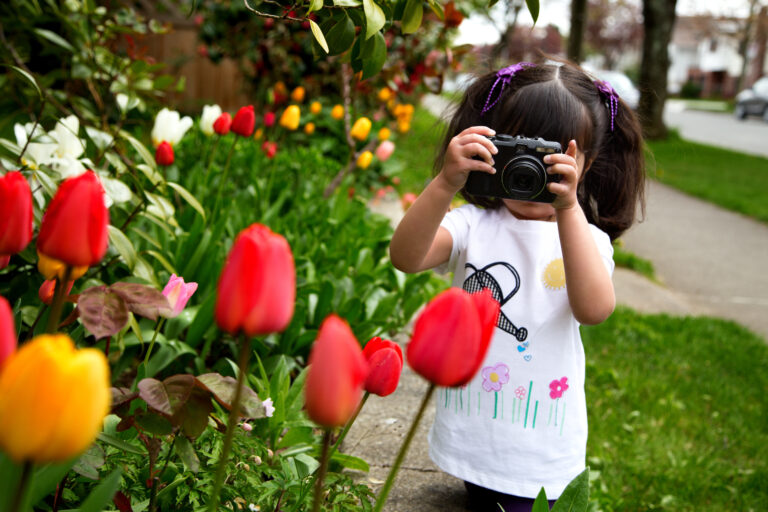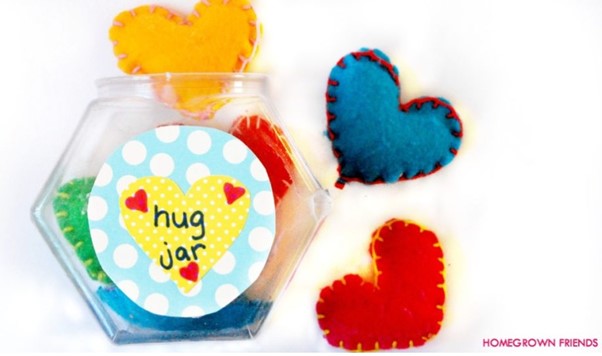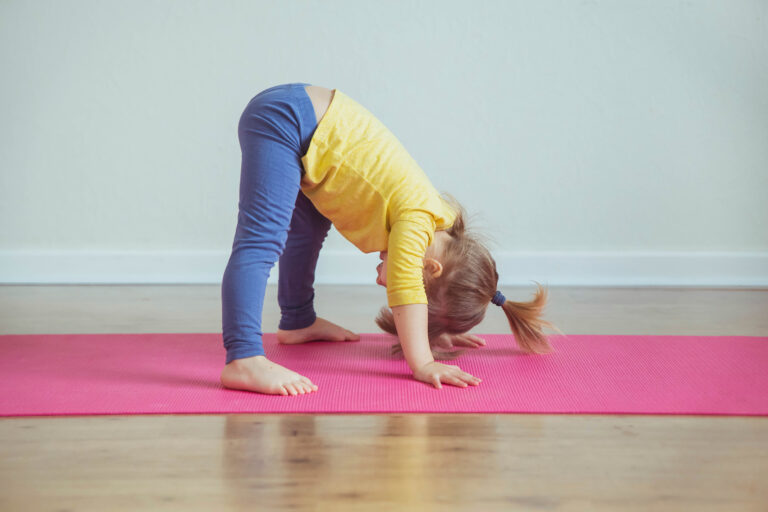The statistics on children’s dental health are shocking. Almost a third of English five-year-olds have tooth decay and a similar proportion don’t see a dentist regularly, according to the NHS.
Dental decay is almost entirely preventable, so what can we do to avoid it and help our children grow up with healthy, happy smiles?
Ages and stages
The average age for a baby’s first tooth to appear is around six months, but some have teeth at just a few weeks old (and around one in every 2,000 to 3,000 is born with teeth), while others have a gummy smile well beyond their first birthday.
By around the age of two to three your toddler should have their full set of 20 baby teeth. These will start to get wobbly and fall out when they reach five to seven years old – most children lose their bottom front teeth first. Back molars normally come through between the ages of six and 13, with the final ‘wisdom’ teeth not appearing until 18 to 25.
Many babies suck their thumb, fingers or a dummy, but as they grow older this can affect the position and growth of their teeth, particularly if they suck very forcefully or for long periods of time. Aim to wean your child off the habit during their toddler years, well before their adult teeth start to grow.
Brush up on brushing
Start brushing your baby’s teeth twice a day as soon as they appear. For very young infants you could use some gauze wrapped around a clean finger or a chewable finger brush. For older babies and children, choosing an age-appropriate toothbrush with a small head and soft, nylon bristles. Use small, circular movements and brush along the gum-line as well as all surfaces of the teeth.
Always use a toothpaste with fluoride. This naturally occurring mineral reduces the solubility of tooth enamel in acids in our foods and also promotes remineralisation, building enamel that is more resistant to decay. The NHS recommends using a toothpaste with at least 1000ppm fluoride for children under six. Your regular family toothpaste should be fine, although young children may prefer the milder taste of a children’s toothpaste.
Use just a smear of toothpaste for babies and toddlers, and a pea-sized amount for children aged three to six. Encourage your child to spit after brushing, but not to rinse, so the fluoride can do its work.
Brush your child’s teeth for at least two minutes twice a day – once last thing before bed, after any bedtime drinks or medicines. The other clean can be at any time of day, ideally at least an hour after eating. Although your child may be keen to do brush their own teeth, you should do it for them until they are at least seven, and supervise them until age eight or so.
It’s very common for toddlers and preschoolers to go through a phase of resisting toothbrushing. If this happens with your little one, here are some ideas that could help:
- letting them choose a new toothbrush, perhaps with a favourite character, flashing light or timer
- using an electric or battery-operated brush
- letting them brush your teeth before you brush theirs
- looking in the mirror while you brush
- making your child roar or laugh to encourage them to open wide
- inventing a toothbrushing song or give a running narration as you clean ‘sugar monsters’ or ‘dirty bugs’ off each tooth
- letting your child brush the teeth of their teddy or rubber duck first
- using a hand-puppet to clean their teeth
- a free app for your phone or tablet, such as Aquafresh Brush Time, Disney/Oral B Magic Timer, Toothsavers, Brusheez, Chomper Chums or Brushytime
- a song about toothbrushing from YouTube – for example Sesame Street’s Healthy Teeth, Healthy Me or Raffi’s Brush Your Teeth
- showing them pictures of rotten teeth to help them understand what could happen if they don’t brush!
Don’t give up. Good dental hygiene in young children affects the adult teeth forming in their gums, as well as preventing decay in their milk teeth and setting up lifelong good habits.
Open wide
Take your baby to the dentist soon after their first teeth appear, and twice a year after that. These early check-ups will probably be quick and fun, getting your child used to the dental surgery and the routine of visiting. NHS dental check-ups and treatment are free for all under-18s in the UK – find your nearest practice here.
Even if you’re not keen on going to the dentist yourself, be positive about your child’s visits. A reassuring picture book might help – try Topsy and Tim Go to the Dentist by Jean Adamson and Belinda Worsley or Ladybird’s Peppa Pig: Dentist Trip.
Healthy eating for healthy teeth
Keeping young teeth healthy isn’t just a matter of good oral hygiene – it’s about good eating habits too. Start by not giving your baby sweet drinks and foods with added sugar when you wean them.
As your child grows older, try not to get into the habit of giving lots of sweet snacks. Choose savoury alternatives such as vegetable crudités with dips, cheese, breadsticks, crackers, oatcakes, plain popcorn, savoury rice cakes, bagels or cheese scones. Once you’re confident that allergies and choking aren’t a risk, offer nuts and seeds too.
Some foods often thought of as ‘healthy’, such as dried fruits, flavoured yoghurts, juices and smoothies, are high in natural sugars and fruit acids that can damage teeth. If you’re giving your child these foods – or any sweet treats like cake, biscuits or chocolate – it’s best to do so at mealtimes as the increased amount of saliva in the mouth helps to counter the effects of tooth-attacking acid.
Get your child used to having water and milk to drink, not fizzy drinks or sweetened squashes.
Look out for hidden sugars. They can turn up in surprising foods, such as pasta sauces, pizza toppings and even bread. If you’re looking at food labels, remember it’s not just plain old ‘sugar’ that can harm teeth, but sucrose, fructose and glucose, and natural sweeteners such as honey.
By looking after your child’s baby teeth when they’re little, you’ll be teaching them how to take good care of their adult teeth when they’re older – teeth that may need to last them 80, 90 or even 100 years!
Written for the Pre-school Learning Alliance by Elyssa Campbell-Barr.

